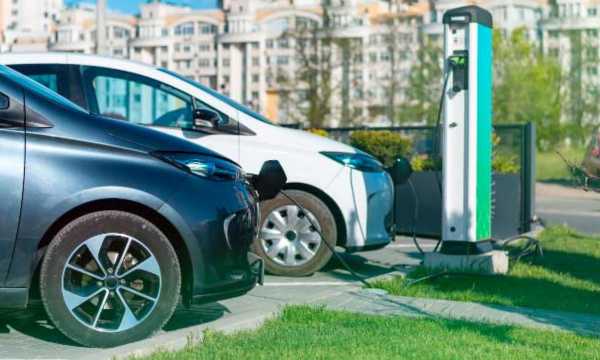The Electrifying Revolution: A Deep Dive into Electric Sports Cars
The automotive industry is undergoing a massive transformation to become more environmentally friendly and energy efficient. Electric sports cars are leading this change.
By combining the thrill of powerful driving with environmentally friendly technology, these cars are changing the way people think about electric vehicles. In this in-depth article, we explore the history of electric sports cars, what makes them special, and how they are changing the automotive industry.
1. Review History:
To understand where electric sports cars are today, you have to look back to their origins. Although the idea of electric vehicles (EVs) dates back to the early 19th century, electric sports cars have only recently become popular. Elon Musk founded Tesla in 2003, and the launch of the Tesla Roadster in 2008 was a big part of the company’s transformation. This stylish and powerful electric race car is a turning point in showing that electric vehicles can be fun while being good for the environment.
2. Technical Improvements:
Huge advances in battery technology are a key reason why electric sports cars are so popular. Lithium-ion batteries offer high energy efficiency and longer lifespan, allowing longer driving range and faster charging times. Additionally, improvements in electric motor technology have made them perform better, so electric sports cars can now compete with gasoline-powered cars in top speed and acceleration.
Another new technology that distinguishes electric sports cars is regenerative braking. The technology collects kinetic energy as the vehicle decelerates and converts it into electricity. This makes the vehicle more efficient and increases its range. As a result, these cars provide a fun driving experience while wasting as little energy as possible.
3. Performance:
Despite what most people think, electric sports cars have very good performance figures. Thanks to the electric motor’s instant torque delivery, this is the fastest way to accelerate a car: from 0 to 100 km/h takes just a few seconds. The lack of a standard transmission makes the driving experience smoother and more exciting.
Some notable electric sports cars, such as the Tesla Model S Plaid and Porsche Taycan Turbo S, have shattered the idea of what electric cars can’t do. Not only can these cars keep pace with gas-powered cars, but they also do better in terms of speed and handling. The responsiveness and accuracy of electric motors change everything in high-performance driving.
4. Range and Charging Infrastructure:
Range anxiety, or the fear of running out of battery while traveling, is one of the biggest concerns people have about electric vehicles. Modern electric sports cars, on the other hand, solve this problem with a greater range; most can travel more than 500 kilometers on a single charge.
Charging equipment has also come a long way and there are now more and more fast charging stations around the world. This infrastructure not only makes long-distance travel easier but also ensures fast parking and fast charging. The cars are equipped with high-tech navigation systems that help drivers find nearby charging stations, reducing their need to worry about range limits.
5. Design and New Concepts:
Electric sports cars often feature advanced designs that take advantage of the unique capabilities of electric powertrains to create efficient and beautiful vehicles. Because there is no standard combustion engine, there is more design space, resulting in a sleek, futuristic, and simple appearance.
In addition, some electric sports cars have the latest technology, such as screens that display augmented reality, self-driving capabilities, and advanced driver assistance systems. These new features not only make driving even more pleasant but also make the electric sports car the first vehicle in the automotive industry to use smart technology.
6. The Effect on the Environment:
One of the main reasons why electric sports cars are so popular is that they are better for the environment. With no tailpipe emissions, these cars help significantly reduce the carbon footprint, especially if they use green energy.
However there are still some concerns, such as concerns about the environmental impact of battery production, the need to build more charging stations, and the overall higher cost of electric sports cars. As technological advances and economies of scale materialize, these problems may become easier to solve. This makes electric sports cars accessible to more people.
8. The Future of Electric Sports Cars:
Electric sports cars have a bright future. As battery technology continues to develop and more research is done into different materials and production methods, cars are likely to become more efficient and environmentally friendly. By adding features such as artificial intelligence and communication, driving becomes even better, making electric sports cars an important part of the automotive world.
Conclusion
Electric sports cars are an exciting combination of speed, environmental friendliness, and new ideas. The automotive industry is changing and these cars are challenging old ideas and setting new standards for what is possible in high-performance driving. With each new technology, electric sports cars are not only changing the way cars are built but also bringing us closer to a future where we can be responsible on the road and have fun at the same time.
FAQs
1. What does an electric sports car mean for the automotive industry?
Electric sports cars must combine high-quality driving with environmentally friendly technology. They challenge standard perceptions by showing that electric cars are both exciting and good for the environment.
2. How have technological advances made electric sports cars so popular?
Electric sports cars are much faster thanks to technological advances, especially in battery and electric motor economics. These cars can now compete with standard cars because they have features like regenerative braking and instant torque delivery that make them faster.
3. How do the performance figures of electric sports cars compare to regular petrol cars?
Electric sports cars often outperform their gas rivals when it comes to speed and handling. The electric motor’s instant torque delivery enables unparalleled acceleration, challenging the common perception of what electric vehicles cannot do.
4. How do electric express buses solve the problem of range anxiety?
Current electric sports cars have a large range; most can travel more than 500 kilometers on a single charge. An increase in fast charging stations and sophisticated navigation systems that make long drives and brief stops for charging easier are also reducing range anxiety.
4. How are electric sports cars built differently than regular cars?
The design of electric sports cars often includes advanced, stylish, and eye-catching components. Because there is no standard combustion engine, there is more design space, resulting in a sleek, futuristic, and simple appearance.
5. Why are electric express trains harmful to the environment?
Electric sports cars are better for the planet because they don’t release pollutants into the air. This is in line with efforts around the world to fight climate change and reduce dependence on fossil fuels, so these cars are a good choice for the planet.
6. Why is the electric fast car market struggling?
Concerns about the environmental impact of battery production, the need for more charging infrastructure, and the overall cost of these vehicles are all issues facing the electric sports car market. But in the long term, these problems must be solved through continued technological advances and economies of scale.
 The Evolution of Electric Cars
The Evolution of Electric Cars
Electric cars, also known as EVs (Electric Vehicles), represent a revolution in automotive technology and environmental conservation. […]
More Car Buying Guides: Navigating Your Way to the Perfect Purchase
Car Buying Guides: Navigating Your Way to the Perfect Purchase
Embark on your journey to finding the ideal vehicle with comprehensive car buying guides tailored to help […]
More Electric Car Maintenance: 6 Effective Tips for Longevity and Performance
Electric Car Maintenance: 6 Effective Tips for Longevity and Performance
Electric cars are currently popular because they are better for the planet than traditional gasoline-powered cars. Electric […]
More